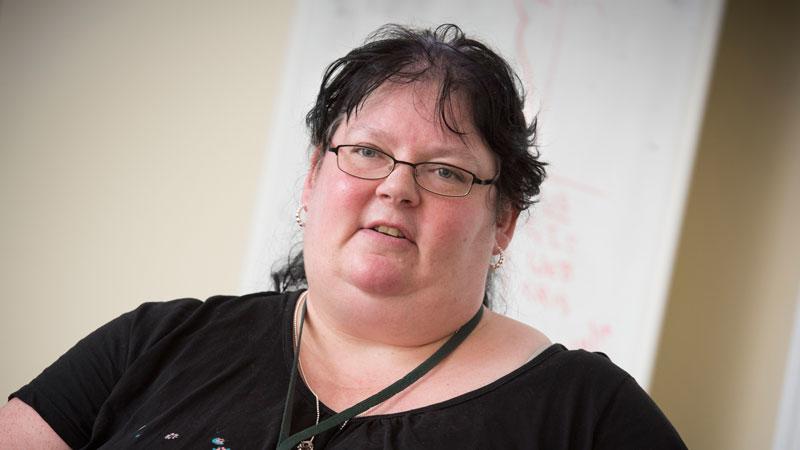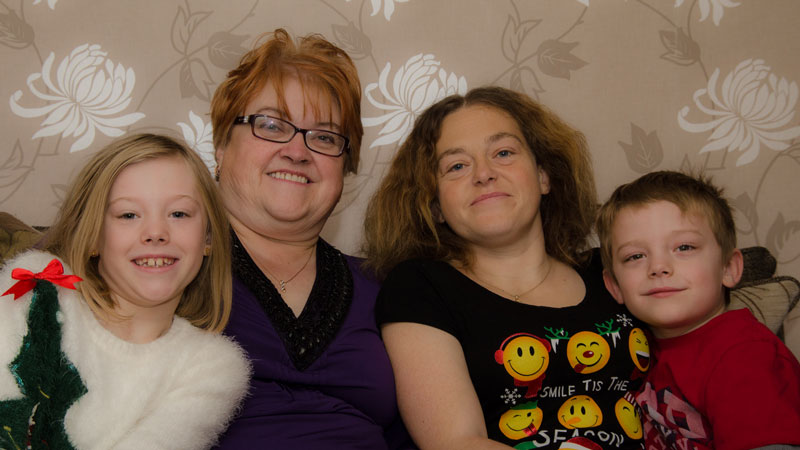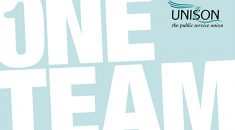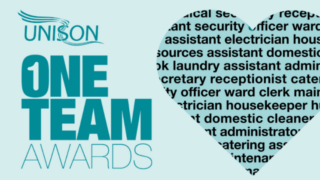Sue Tarn is a waste officer for West Berkshire District Council. As well as the usual refuse and recycling, her job includes an interesting addition – managing the collection of “clinical waste” from the homes of people suffering with kidney failure, who use dialysis.
And that means that now and again Sue gets some unusual good news on the phone.
“Sometimes these people call me and say, ‘I’ve have had a transplant. I don’t need dialysis any longer, so you don’t need to collect the waste.’ That’s always made me feel very emotional,” she says. “I’m very happy for them.”
And now, such a call will mean even more to the UNISON member and learning rep. Because in February Sue’s husband Bill died suddenly, aged 60, of a brain haemorrhage. And Bill was an organ donor.
Within hours of his death, Bill’s kidneys were the first of his organs to find a recipient, someone whose life in that moment would be instantly transformed, just like those of her council clients.
“People die because they can’t get organs. So it was such a comfort to me that someone had been helped by Bill,” says Sue (pictured below). And she’s fairly confident that eventually her husband’s heart valves and corneas, which can be stored for longer, will also be put to good use.
Speaking about Bill’s death is still difficult for Sue. But she perks when recalling their life together – their trips across the United States, their 21st anniversary in Hawaii and plans to revisit the island this Christmas, his passion for motorcycles and model airplanes.
It’s also important for her to tell fellow members about organ donation.
“It’s very unusual for people to die in the exact circumstances where they can be potential donors. Which is why the more people that enlist as donors the better,” she says.
“I’m also a registered donor myself. It was something Bill and I discussed and both felt strongly about.”

But registering as a donor is just the first step. Even if you have a donor card, families can still refuse permission after your death. Statistics show that more than 40% of grieving relatives say ‘no’ when they are approached by doctors – and they reason they give is that they don’t know what their loved one would have wanted.
“If you discuss it with your wider family, it gives you an opportunity to remove that doubt,” says Sue. “Because I knew that Bill was fully in favour of organ donation, it was an easy decision for me, a no-brainer.”
The knowledge also enabled Sue to prepare the couple’s 27-year-old daughter Robyn and 19-year-old son Jamie for what needed to happen very quickly after Bill’s death.
Since then, she has collected a St John Award for organ donation on her husband’s behalf (pictured top, with the inscription ‘Add Life, Give Hope’) and attended a candlelit thanksgiving service organised for families of donors in their area, presided over by the chaplain of the Southampton Hospitals Trust.
But the most significant testament to his bravery, for her, probably came closer to home.
“Jamie got his driving licence a few weeks ago and when he told me he said, ‘I’ve made sure I’ve ticked the box’. Meaning he had become an organ donor. It was quite an emotional moment for him. Most people never give it a thought when they get their licence. But for us it means something a bit more now.”

A woman who knows just what such generosity means is UNISON president Wendy Nichols.
In 2002, Wendy’s 19-year-old daughter Rachel (pictured above today, with her mother and children) was diagnosed with renal failure. “Rachel had not been well, but we didn’t imagine it would be anything like this. It was an immense shock.”
The brutal reality was that both of Rachel’s kidneys had failed. The only solution for a normal life, long-term, was a transplant. Until then, she had to have dialysis.
“Dialysis will keep you alive, but it can’t do the same job as kidneys,” says Wendy.
“You feel tired all the time, you lose your concentration levels, you’re prone to infection.”
One moment Rachel was wondering about university, her mother recalls, the next her life was “on hold.”
Like Sue Tarn’s clients, she was having dialysis at home. If the family went on holiday, “the machine and the kit and caboodle” had to go with them. The garage “became a medical store.”
And for months the family waited for news of a donor. “At first we were all waiting for the bleeper to go off to say there was a donor, but it never did. It got to the point where we thought, ‘This is never going to happen’. At one point we heard it and all went into a panic. But Rachel was just changing the batteries.”
But then, on the eve of Rachel’s 21st birthday, it did bleep, for real. “I was about to get my hair done when I got the call,” Wendy recalls smiling. “So I went into the hairdresser to cancel the appointment. And we were both standing there, me and the hairdresser, crying.”
Rachel went into hospital that Friday, had a barrage of tests for compatibility, and by the Saturday had two new kidneys.
“We were all so elated that day, because Rachel was getting her life back again. But as a mum, I was also saddened that somebody at the same time would be distraught, because they had just lost a child. I still think of those people and the gift they gave in such terrible circumstances.”
The transplant did change Rachel’s life. She got a permanent job, got married and had two children. And while organ transplant can be a rollercoaster – in 2011 the original transplant failed and she had to have another – Wendy is in no doubt of its life-changing importance.
“Without that help, without those organs being donated, my daughter may not be here today. And I would not have the two grandchildren who mean the world to me.”
The president was present earlier this year when UNISON became the first union to partner with NHS Blood and Transplant, to promote awareness of both blood and organ donation.
The aim is to increase the numbers registering to become donors from UNISON’s 1.3 million members.
“No one ever knows what is around the corner,” she says. “So I would ask every UNISON member to think about giving blood and putting their name on the organ donation register.”
To sign up to the NHS Organ Donor Register visit www.organdonation.nhs.ukwww.organdonation.nhs.uk
To sign up as a blood donor visit www.blood.co.uk







